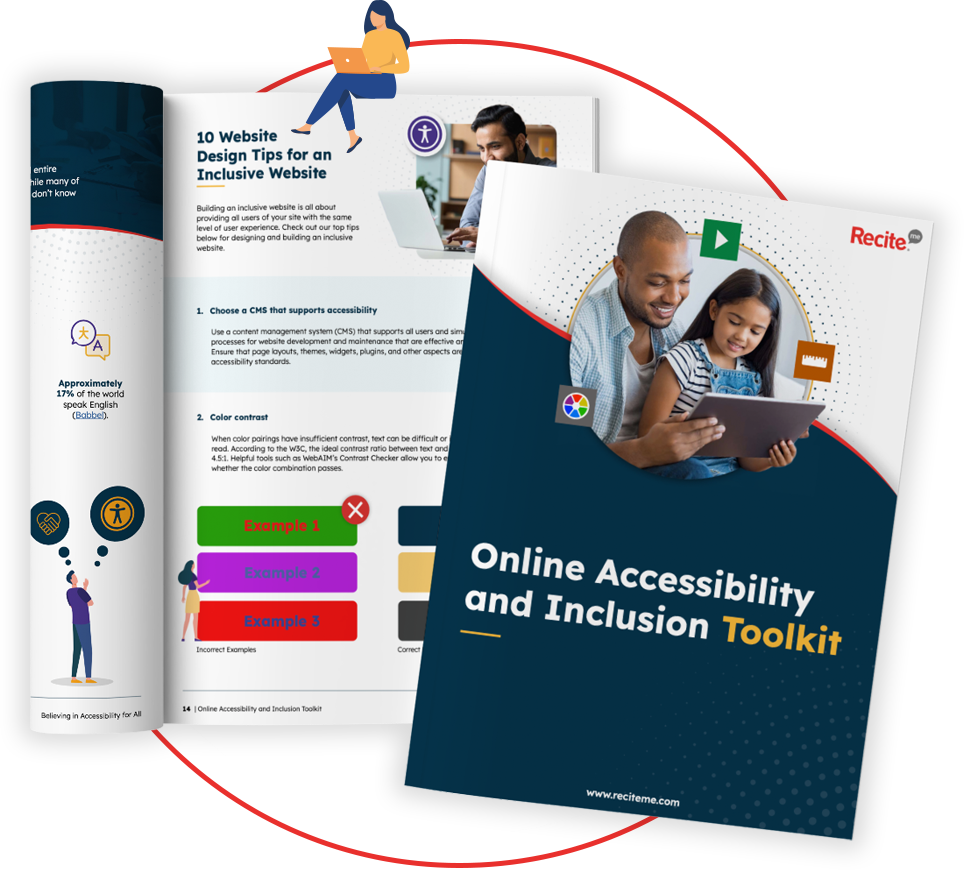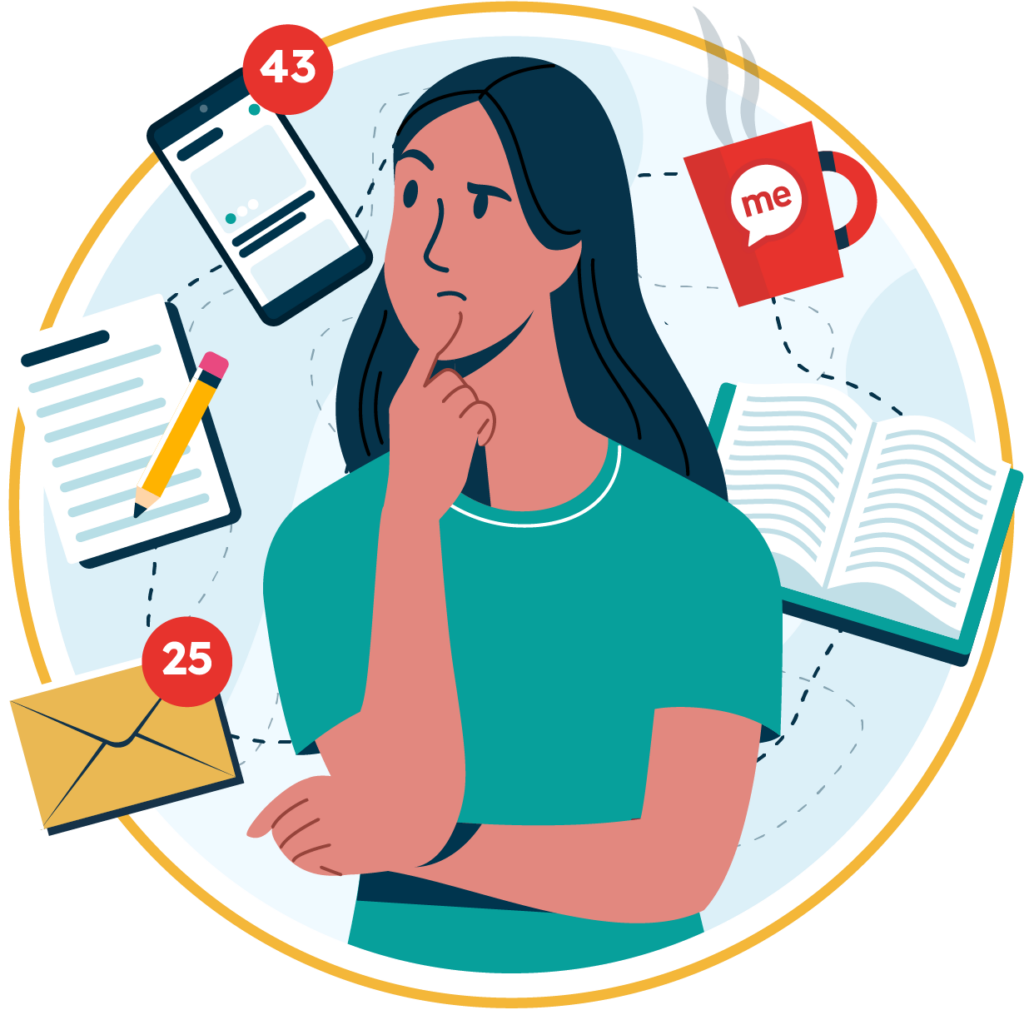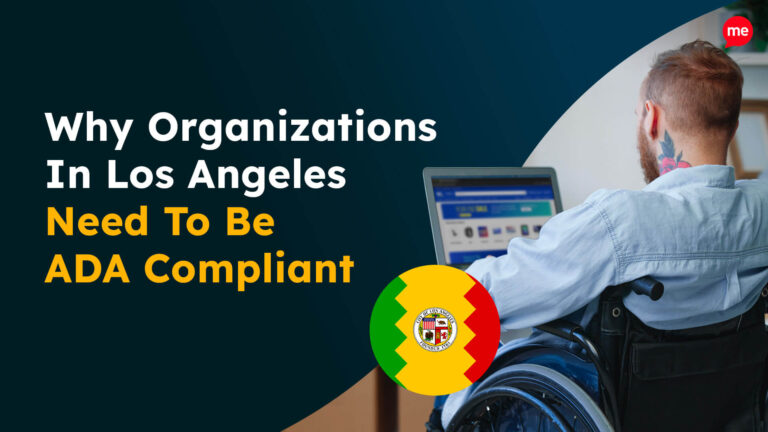Get Your Free Accessibility & Inclusion Toolkit
Download NowADHD can be a challenging condition to deal with, both for the individual experiencing it and their peers. The disorder is often associated with a low attention span, which can be difficult for various different reasons. This article aims to explore how the introduction of Assistive Technology (AT) has aided in improving the quality of life experienced by those with ADHD. We will take a deeper dive into what exactly is ADHD, how assistive technology can be beneficial, who needs AT and examples of real-life assistive technology in action.
What is ADHD?
Attention-Deficit/Hyperactivity Disorder, commonly known as ADHD, is a neurodevelopmental disorder that affects both children and adults. It is characterized by a persistent pattern of inattention, hyperactivity, and impulsivity that can interfere with daily functioning and quality of life.
Individuals with ADHD often struggle with paying attention to details, organizing tasks, following through on instructions, and sustaining focus on activities that require mental effort. They may also exhibit hyperactive and impulsive behaviors, such as fidgeting, restlessness, difficulty waiting their turn, and speaking out of turn. However it is important to note that symptoms of ADHD can vary in severity and presentation from person to person.
While the exact cause of ADHD is not fully understood, research suggests a combination of genetic, environmental, and neurological factors may contribute to its development. Furthermore, ADHD is not a result of laziness or a lack of discipline but is a legitimate medical condition that can significantly impact an individual’s life. With appropriate diagnosis and management, individuals with ADHD can lead successful and fulfilling lives.
Examples of Assistive Technology for ADHD
There are numerous assistive technologies that help to support and improve the lives of those with ADHD. Each has its own function and can help to provide assistance to regular challenges faced by people with ADHD. Some of the main assistive technology examples are listed below:
Reminders & Alarm Devices
Reminder and alarm devices provide invaluable support to individuals with ADHD by mitigating challenges related to forgetfulness and time management. These tools offer structured, timely cues for tasks, appointments, and medication schedules, helping individuals stay organized and on track.
Auditory and visual alarms grab attention, prompting immediate action and reducing the risk of missing important deadlines or commitments. In doing so, they alleviate anxiety and boost productivity, allowing those with ADHD to focus on their tasks without the constant worry of forgetting something crucial. Reminders and alarms serve as reliable external memory aids, enhancing daily functioning and improving overall quality of life.
Speech Recognition Software
Speech recognition software is a game-changer for individuals with ADHD. This high-tech assistive technology allows users to input text and control their devices using voice commands, reducing the cognitive load associated with typing or writing.
For those with ADHD, who often struggle with fine motor skills, organization, and attention, speech recognition software offers a type of Assistive Technology for communication and productivity. It enables users to dictate emails, take notes, and navigate digital interfaces hands-free. This not only enhances productivity but also minimizes frustration, as users can capture their thoughts and ideas effortlessly, making speech recognition software a valuable tool for managing ADHD-related challenges.
Noise-Cancelling Headphones
Noise-cancelling headphones offer significant benefits to individuals with ADHD. They create a controlled acoustic environment by actively reducing or eliminating external sounds, helping to minimize distractions and sensory overload.
For people with ADHD, who often struggle with maintaining focus due to heightened sensitivity to noise, these headphones provide a valuable tool for concentration. Whether in a bustling office, a noisy classroom, or a chaotic home environment, noise-cancelling headphones can create a quieter space, making it easier for individuals to immerse themselves in tasks, improve attention span, and enhance overall productivity.
Audiobooks & Screen Readers
Audiobooks and screen readers provide significant benefits to individuals with ADHD by offering alternative ways to access information. Audiobooks allow for auditory learning, enabling individuals to absorb content without the need for sustained reading focus. Screen readers, on the other hand, convert text on digital screens into spoken words, facilitating comprehension and reducing the cognitive load associated with reading.
Both technologies enhance accessibility for those with ADHD, promoting better understanding, retention, and engagement with educational and recreational content. As the user can rely on the technology to relay the information as opposed to manually reading the text. Making it easier to concentrate and less likely to be distracted by external factors. This accessibility empowers individuals to navigate academic, professional, and personal challenges more effectively, improving their overall quality of life.
You can read more about the benefits of Assistive Technology in Educational settings or check out our blog on assistive technology in special education here.
Our 40-page Digital Accessibility & Inclusion Toolkit helps businesses break down online barriers and make a real impact. It offers practical advice on all aspects of digital accessibility, from writing an accessibility statement to accessible website tips and inclusive hiring.

Benefits of Assistive Technology for People with ADHD
Assistive technology offers numerous benefits for individuals with ADHD, helping them overcome challenges and improve their overall quality of life. Here are some of the key advantages:
- Enhanced Organisation & Time Management: Assistive technology tools, such as digital calendars, task management apps, and reminder systems, help individuals with ADHD stay organized and on top of their responsibilities. They can schedule appointments, set deadlines, and create to-do lists, reducing the likelihood of forgetfulness and missed tasks. Furthermore, the use of medication reminder apps can play a critical role in ensuring individuals take their prescribed medication on time.
- Increased Productivity: Assistive technology can boost productivity by minimizing distractions. Tools like website blockers and focus-enhancing apps help individuals maintain concentration on important tasks.
- Better Note-Taking: Digital note-taking apps and voice-to-text software allow for quicker and more organized note-taking. This is particularly beneficial for students and professionals who need to capture and review information effectively.
- Enhanced Reading and Studying: Assistive Technologies for reading such as text-to-speech software assists individuals in comprehending and retaining information by reading text aloud. Digital highlighting and annotation features also make it easier to engage with and remember content. This shows the importance of assistive technology in the classroom.
- Improved Executive Function: Cognitive training apps help individuals enhance executive functions like working memory, attention, and self-control, which are often impaired in individuals with ADHD.
These are just a few of the many core benefits provided to users of Assistive technology and this can stretch far and wide beyond just people with ADHD. You can learn more about different characteristics assistive technology can benefit with the following articles by Recite Me:
It’s also worth noting the boost to self-esteem and confidence users feel as a result of using these different technologies. Fostering invaluable feelings of independence for those living with ADHD, as well as a reduction in overall levels of daily anxiety and an enhanced ability to communicate effectively in a diverse range of settings.
Start Your Web Accessibility Journey Today
The Recite Me team is here to help you create a fully compliant and inclusive website. Helping you save time and money by highlighting what needs to be fixed first.
Get started today by contacting our team for more advice about making websites and business more inclusive online. You can also use our website accessibility checker today for free.



